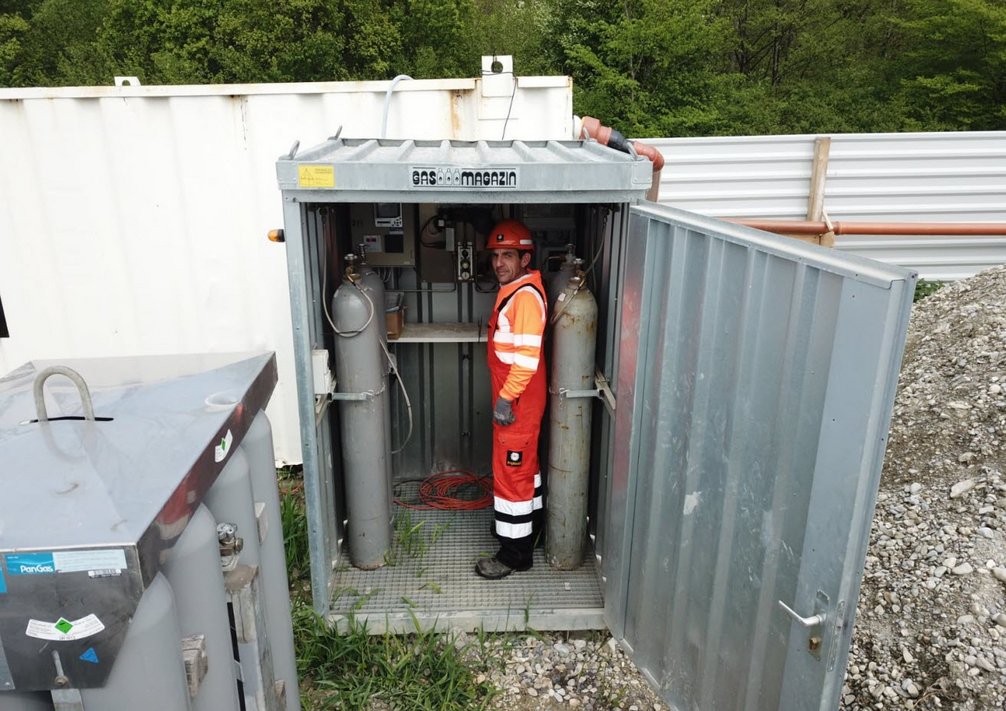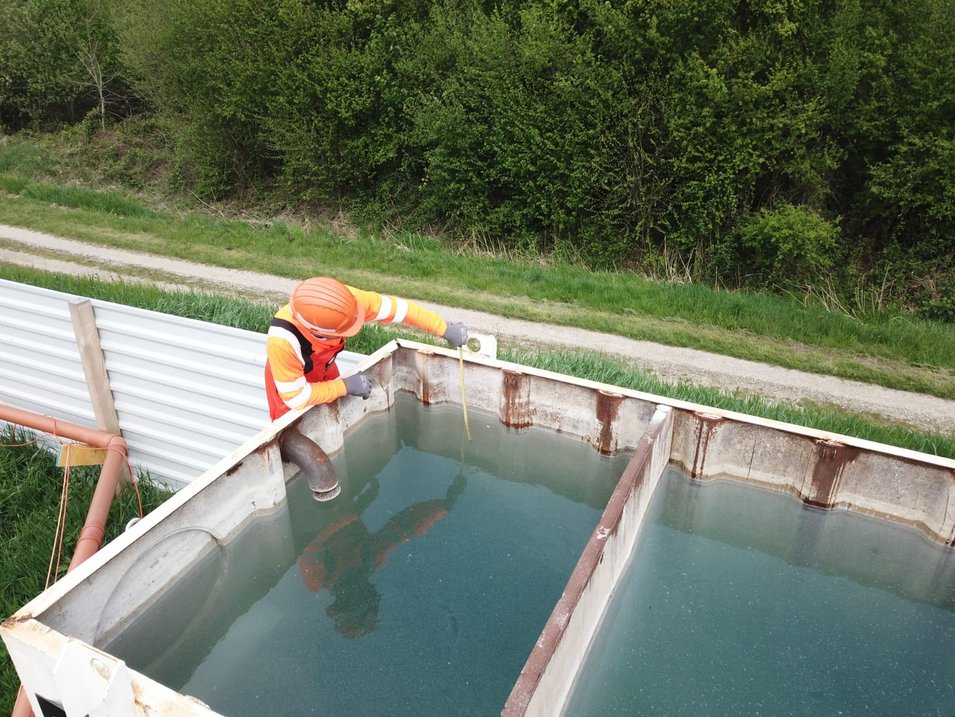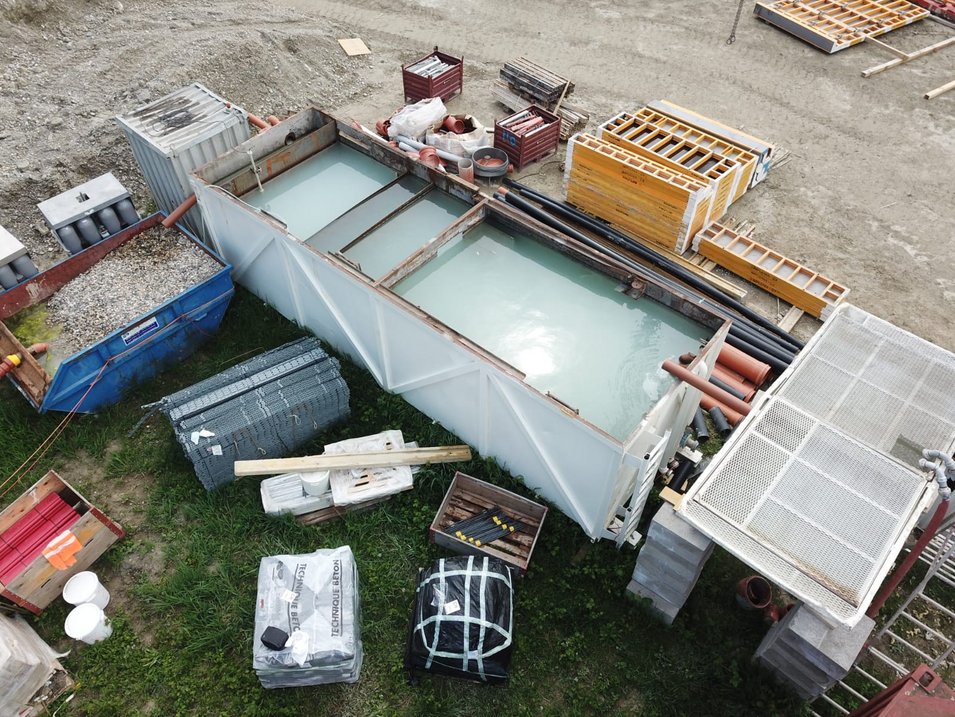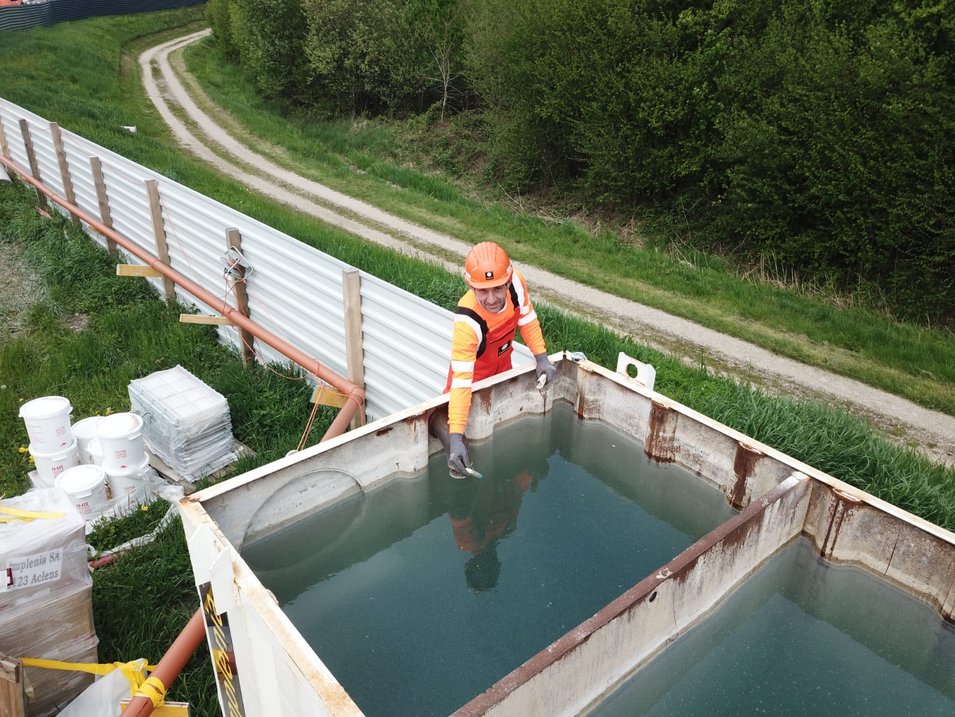Water, water everywhere

Water plays a big role on construction sites. It comes out of the ground, falls from the sky, flows away from washed concrete mixers and drips from cleaned vehicles. The total volume of water can be considerable, and much of it is contaminated; so what should be done with it? We aren’t allowed to just divert it into the public drains.
The industry has, therefore, developed various techniques for treating and safely disposing of waste water. Cloudy water – from a construction pit, for example – is pumped into a settling tank, where the tiny suspended solids can sink to the bottom. Meanwhile, water that has been in contact with fresh cement or concrete is normally neutralised by treating it with carbon dioxide gas.
In recent years, Implenia has worked hard to ensure it can deal with water on its construction sites properly. In 2017, the company introduced an environmental handbook which provides site teams all over Switzerland with coherent, detailed information about what they need to do to protect the water supply. Implenia went one step further in Cantons Geneva and Vaud in 2018 with the creation of the “Dep’Eaux” department.
Previously, each individual construction site was responsible for hiring and operating its own waste water treatment machinery. The company set up “Dep’Eaux” with all the necessary technical equipment, which is made available to all from the new department’s base at our Satigny depot. Implenia’s Sustainability Department also trained up Franck Bringoux, a former civil engineering foreman, to install, maintain and monitor the equipment. He now ensures that all construction sites in Cantons Geneva and Vaud – 20 on average – deal with their waste water correctly.
It has only taken a year for “Dep’Eaux” to prove its worth. Our internal expertise in the treatment and control of waste water has greatly improved, which has reduced the risk of faults and incidents. And if anything does go wrong, Bringoux is quickly there to sort it out. The benefits are not just environmental: the efficient organisation and the fact we are using our own equipment has also reduced the cost of waste water treatment.






Comments (0)
No comments found!